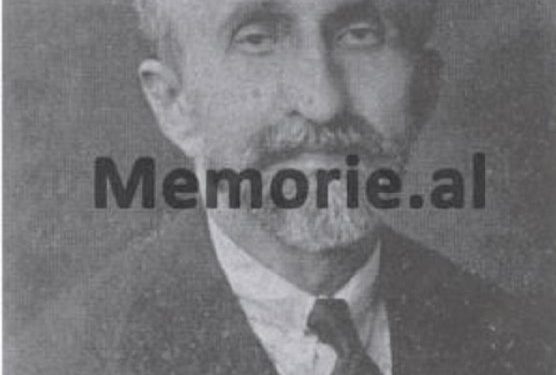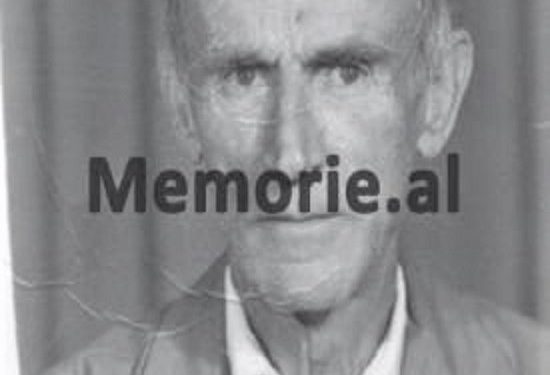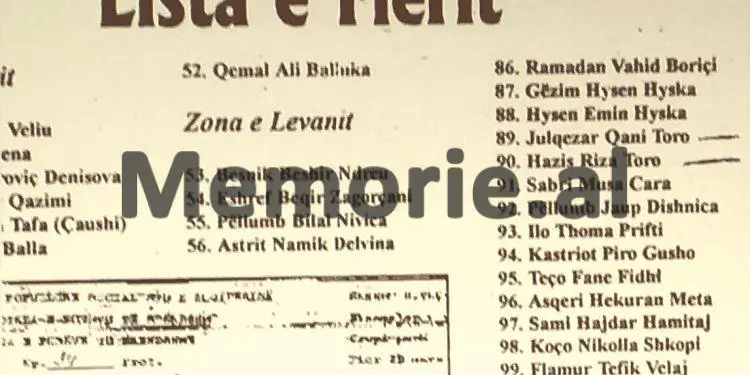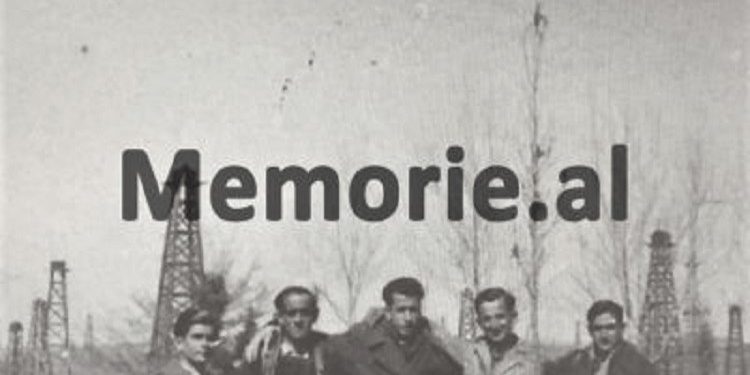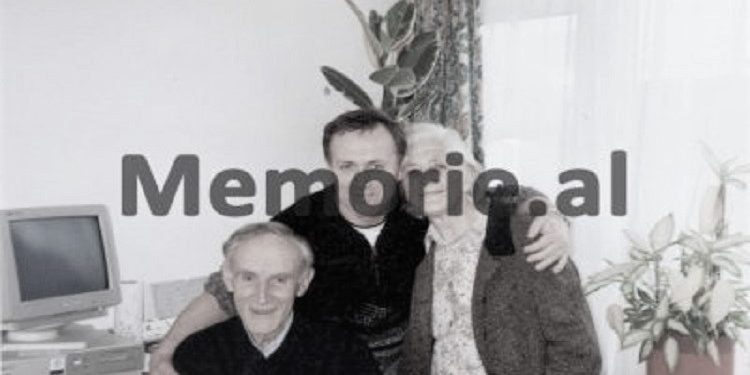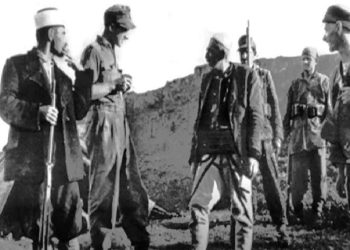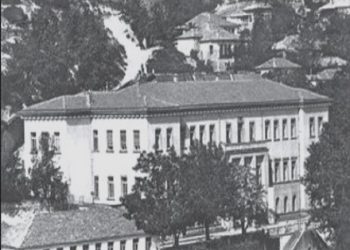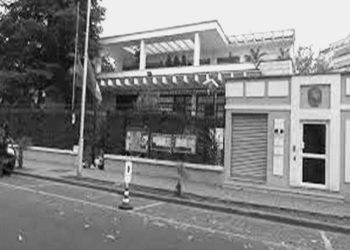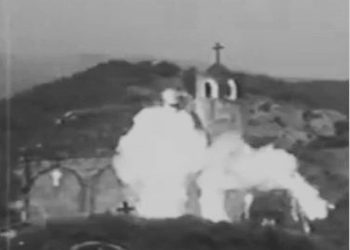Dashnor Kaloçi
Memorie.al publishes the unknown story of the Toro family from the Kurjan village of Mallakastra, where its ancestors, after graduating from Istanbul universities, served during the period of the Zog Monarchy as Salih Toro, who was appointed to the judiciary. the post of President of the Civil Branch in the Dictation Court in Tirana. Engaging the Toro family with the Anti-Fascist Movement and withdrawing from the Front after the Mukje Agreement was broken, holding nationalist forces to the side, which caused the family to be seen as reactionary after the Communists came to power. ended up in internment camps in 1945. Qani Toros fled Albania by settling in West Germany near Company 4000, and the tragic Toro Grape event working in the oil wells in Kucova, which he unveiled in front of everyone the workers, one of the lieutenants of the State Security with the rank of lieutenant, fired a shotgun and shot him three times in the head… ?!
The only one who could escape our family at that time without exile was my brother, Qaniu, who fled to the mountains to escape the vengeance of the Communists, who declared him an enemy without ending the War. In early 1946, Qaniu along with his two friends, renowned intellectuals who had graduated in the West: Taho Baçi and Ramadan Velmishi, fled Albania and settled in the German Federal Republic. At this time, his other brother, Rrushiti, after spending five years interning with his family in Kruja, was released and went to Patos where he began work as a laborer in one of the oil companies of the area. But it did not last long, after a few days he was brought before the collective and made a public disclosure, calling him “an enemy and as a saboteur who had gone there to burn oil wells.” At the end of the meeting when everyone was waiting for the grapes to be put on the grapes, something much more severe happened. One of the lieutenant security officers (L.S.) fired a handgun from his belt and shot him three times in the head, leaving Rrushit dead in the country, in front of all the oilmen present at the gathering. ” The man who speaks and testifies about Memorie.al is Haziz Toro residing in the city of Fier, who recounts the entire tragic story of his family originating from the Kurjani of Mallakastra, who was massacred in the most barbaric way for nearly half a century. the communist regime of Enver Hoxha. Who is Haziz Toro, what is his family’s past during the years of the Zog Monarchy and during the fascist occupation of Albania? Why did the Communist regime that came into power in late 1944 begin their vengeance on them and what was the fate of the members of that comma-Castro family from 1944 until the fall of the Communist regime?
Toro, supporters of the Monarchy
Haziz Toro was born in 1920 in the village of Kurjan in Mallakastra, where his family comes from. One of the most obedient men of that family was Emin Toro, who was born in the 1850s and spent most of his life in Turkey where he graduated in Jurisprudence. At the time Emin studied in Turkey at Istanbul University’s Department of Jurisprudence, one of his relatives was Salih Toro. After graduation, Salihu returned to Albania and in 1921 he was summoned to Tirana and was appointed President of the Civil Branch in the Court of Dictation. In the final years of his life, Emin returned to his hometown of Mallakastra, where he passed away around the early years of the last century. He left two sons: Rizain and Hazbi, who, after his father’s death, took over the management of their family property that was large enough. Of the two sons of Emin Toro, only Rizai made a name for himself after being involved in politics and was known throughout Mallakastra at the time. While Emin’s other son, Hazbiu, after completing his studies and graduating in Finance in Turkey during the years of the Zog Monarchy, served as Finance Lieutenant in the customs of the village of Blata in the Debar Prefecture. Riza, who was also the eldest son of Emin Toro, had three sons: Rrushitin, Qani, and Haziz, and all three brothers studied and graduated from Harry Fultz American Technical School in Tirana. After graduating from that school, Qaniu and Rrushiti began various jobs in the late 1930s, with Haziz earning a degree from the Monarchist government of that time, enrolling in the Faculty of Agronomy at the University of Bologna. But after finishing his first year with very good results, Haziz interrupted his studies and returned to Albania with the intention of participating in the Anti-Fascist Movement.
The Toro family all with War
During the War period, in 1939-1944, the entire Toro family of the Qur’an, which was then home to about 12 houses, became associated with the Anti-Fascist Movement. That family at that time had close friendships with some of Mallakastra’s first homes, such as that of Bektash Bey Çorushi, Bektash Bey Cakran, Sheh Ismail Çorushi (Mehmet Shehu’s father) Cfirs, Kloses, etc. Likewise, in addition to these well-known commodities, the Toro family extended its friendship to other well-known families, such as the Lushnja Sefa, the Regis Elder of Konispol, and that of Ali Maliq Agolli in Debar. Concerning this and the attitude of that family during the war, Haziz Toro, states: “Since April 1939, our whole family has openly expressed indignation against the fascist occupation of the country and from 1942, my brother Qaniu, was involved in the organization of the First Partisan Group of our province of Mallakastra, being appointed and commander of that armed formation. At that time, within that group, Mehmet Shehu also joined Xhelal Staravecke, who later became the leader of the largest formations of Enver Hoxha’s National Liberation Army. During the War, our family had some old feuds with the family of Isa Tosca, and they were further increased as our brother, Qaniu, came up the mountain at the head of the First Partisan Group of Mallakastra. Given this fact, IsaToska, who had the support of the Italians, took the opportunity and burned our homes in the village of Kurjan. By the fall of 1943, when Enver Hoxha denounced the Mukje Agreement and the open clash between partisan and nationalist forces began, our family withdrew from the Front and distanced themselves from partisan forces. After that we supported the nationalist forces and our brother, Qaniu, stayed with some nationalist forces, including Ismail Çorushi, who had ceased any cooperation with the partisans, ”recalls Haziz Toro.
1945, Toro internment
Immediately after the end of the War, the Communist regime that came into power declared the Toro family hostile and reactionary and began to fight it in every possible way. Regarding this, Hazis Toro recalls: “Immediately after the war ended, in December 1944, our family found themselves under the terror of the Communists who came to power, who began to avenge us. At the beginning of 1945, we were exiled to the town of Kruja, where, along with many other families, kept us under constant control. The only one who could escape our family at that time was my brother, Qaniu, who fled the mountains to escape the revenge of the Communists who had declared him an enemy since 1943 when he distanced himself. from the partisans and joined the nationalist forces. After spending some time in the mountains, in early 1946, Qaniu along with his two well-known intellectual friends who had graduated in the West: Taho Baçi and Ramadan Velmishi, fled Albania and settled in the German Federal Republic. In 1950, Qaniu joined the ranks of the “Company 4000”, which was installed on several rolling hills on the outskirts of the city of Munich. That company, which had an effective 4,000 personnel from all over Eastern Europe, also had two battalions of 250 Albanians trained by Anglo-Americans to land in Albania. Qani stayed at the company until 1954 when it melted away after the betrayal he had made to Kim Philby, the British agent working for the Soviets. Shortly afterward, my brother, Qaniu, left Germany and settled in the US where he lived until 1982 Haz, recalls Haziz Toro, at the time after the war ended, when the Communists began to retaliate against their family and interned in the city of Kruja.
Execution of Rrushit in Patos
Until the 1950s, the Toro family remained in exile along with many other families whom the Communists had declared hostile and reactionary. But in the 1950s, when Qani Toro joined the formations of military bases trained by Anglo-Americans to be dumped in Albania, that family began an even more severe blow. Regarding this, Haziz relates: “In the early 1950s, after completing the first five years of our internment sentence, we were removed from Kruja and deported again to various places. My family and I were taken to the Porto Palermo Fortress, while my other brother, Rrushiti, after his release went to Patos, where he began work as a worker in one of the oil companies of the area. But the work didn’t last long, for he apparently was taught the biography he had not shown. Afterward, Rrushiti was brought before the collective where he had begun work and made a public expose calling him an enemy and saboteur who had gone there to burn the oil wells. At the end of that meeting, when everyone was waiting for the grapes to be put on the grapes, something even worse happened. One of the Mallakastra Branch Security Officers, who held the rank of lieutenant, fired a pistol from his belt and shot him three times in the head, leaving Rrushit dead on the spot, in front of all the oilmen present at the gathering. That assassination terrorized all those workers who had accidentally gathered there, but none could respond as the whole country was surrounded by numerous police forces”, recalls Haziz Toro, in connection with the tragic murder of his brother, Rushit.
Çezar, Qazimi, and Ylviu are imprisoned
The barbaric assassination of Gros Toros at the time aggravated the condition of his tribe, as all Toro families who were interned at that time were often referred to as having a man shot by the Party. In this connection, Haziz recalls: “After the killing of Rrushiti, I remained in exile in Porto Palermo until 1956. That year, I was taken to the village of Plug, Lushnja, where I established a family, marrying my daughter. of Ali Maliqi (Agolli) with whom we had old friendships. We remained in that village until 1967 when we were released from exile and returned to our village of Qur’an. At that time we gathered all the families of our tribe who had been in exile. Even in our village of Korjan, we were taken as internees and the fight against us was even stronger, as everyone knew us. As a result, in 1976, the Communist regime launched yet another blow to our family. That year, my nephew, Çezar Toro, (Qaniu’s son), who worked in a cooperative, was arrested and sentenced to ten years in a political prison. After Çezar’s arrest and conviction, Qazim Toro, the son of my first cousin, was arrested and sentenced to ten years in prison. The Communists’ revenge on our family did not end there, as they were later arrested and sentenced to ten years in prison, along with another cousin of ours, Ylvi Toro. He joined Çezar and Qazim in the Spaç camp, where all three served sentences until 1986 ″, recalls Haziz Toro. Memorie.al




